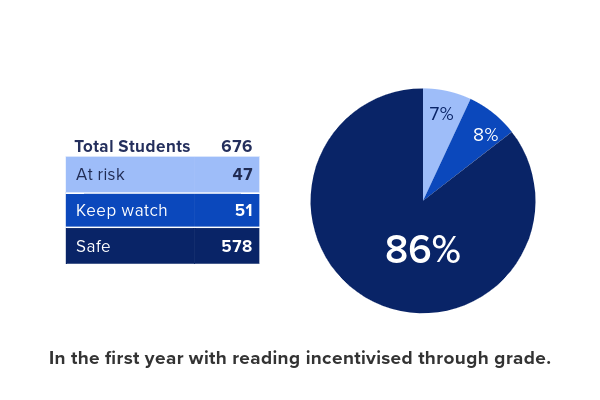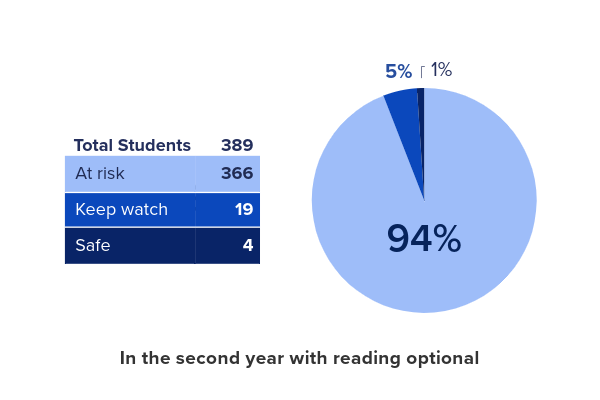Francesco’s Story
Dr. Francesco Del Giudice leads a first-year module at Swansea University with a cohort of around 600 learners. He was very aware of the challenges he faced when setting up his course and was keen to have something in place that could keep his students engaged and motivated. He was mindful that, in his words, students are “complex” nowadays, often juggling their studies with part time jobs and often distracted by social media.


Incentivisation
He forged a partnership with McGraw Hill in 2020, using Connect for his module and incentivising his learners to use it by allocating marks to both their readings which he would set weekly, alongside assignments and activities. The chart below shows that that approach worked well with high numbers of learners being considered ‘safe’ by the system which draws on data showing students logging in to Connect, completing readings and activities and the time spent in the system.
The second chart shows the following year where Francesco wanted to allow his learners more autonomy with their studies.
Engagement
He removed the marks he attributed to work in Connect and told his students Connect was there if they wanted to use it. What he found was almost the exact opposite of the Academic Year 2020: high volumes of learners didn’t register, and those that did were considered ‘at risk’ for their lack of engagement with the platform. Needless to say, Francesco reverted back to using the 2020 model and has subsequently seen his engagement rise again.


From Apathy to Appetite
Explore our case studies and success stories on digital learning and reading habits. They explore how modern students engage with digital content, emphasising the shift towards digital learning tools and their impact on study habits and academic performance.
